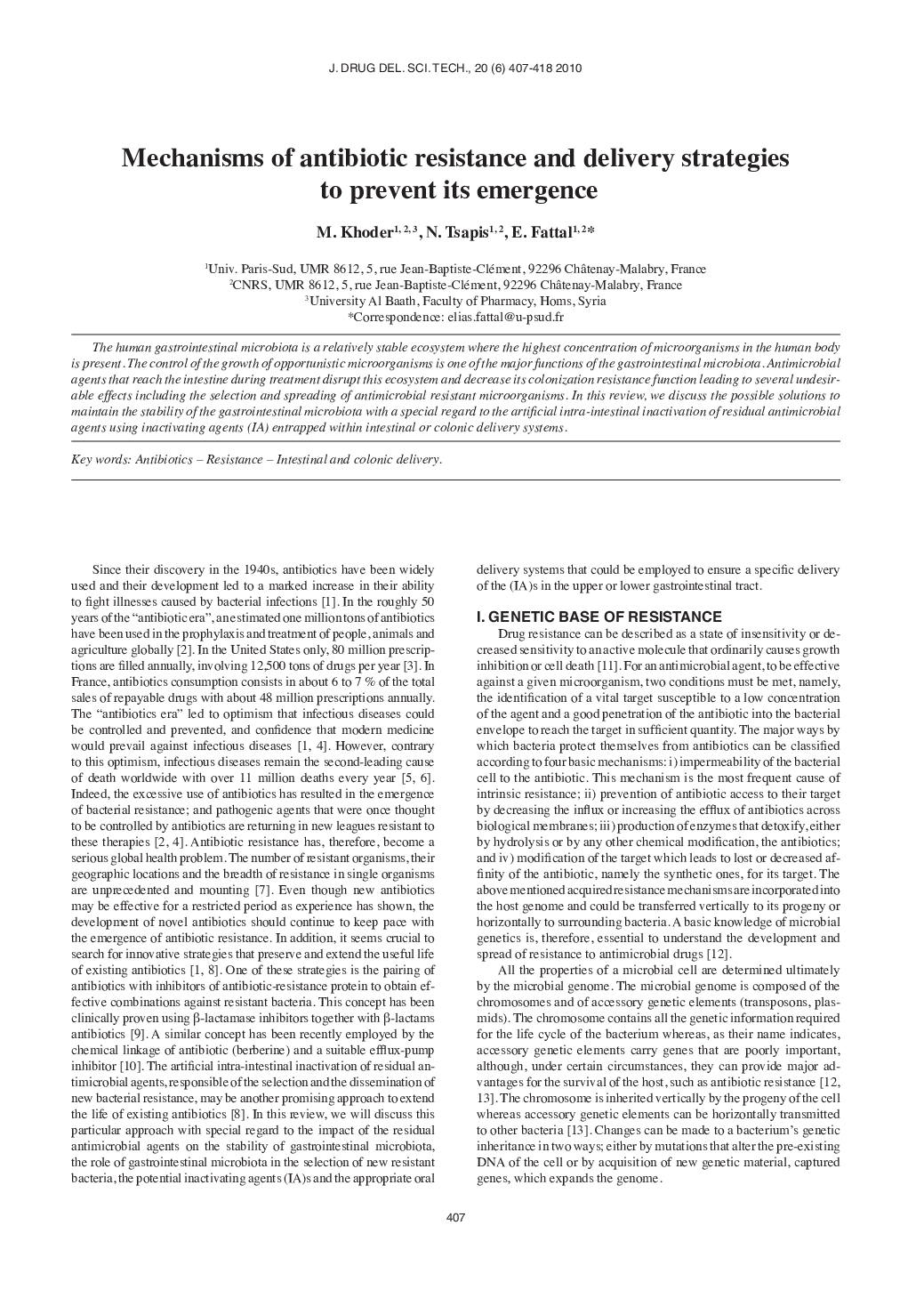| Article ID | Journal | Published Year | Pages | File Type |
|---|---|---|---|---|
| 2483620 | Journal of Drug Delivery Science and Technology | 2010 | 12 Pages |
The human gastrointestinal microbiota is a relatively stable ecosystem where the highest concentration of microorganisms in the human body is present. The control of the growth of opportunistic microorganisms is one of the major functions of the gastrointestinal microbiota. Antimicrobial agents that reach the intestine during treatment disrupt this ecosystem and decrease its colonization resistance function leading to several undesirable effects including the selection and spreading of antimicrobial resistant microorganisms. In this review, we discuss the possible solutions to maintain the stability of the gastrointestinal microbiota with a special regard to the artificial intra-intestinal inactivation of residual antimicrobial agents using inactivating agents (IA) entrapped within intestinal or colonic delivery systems.
